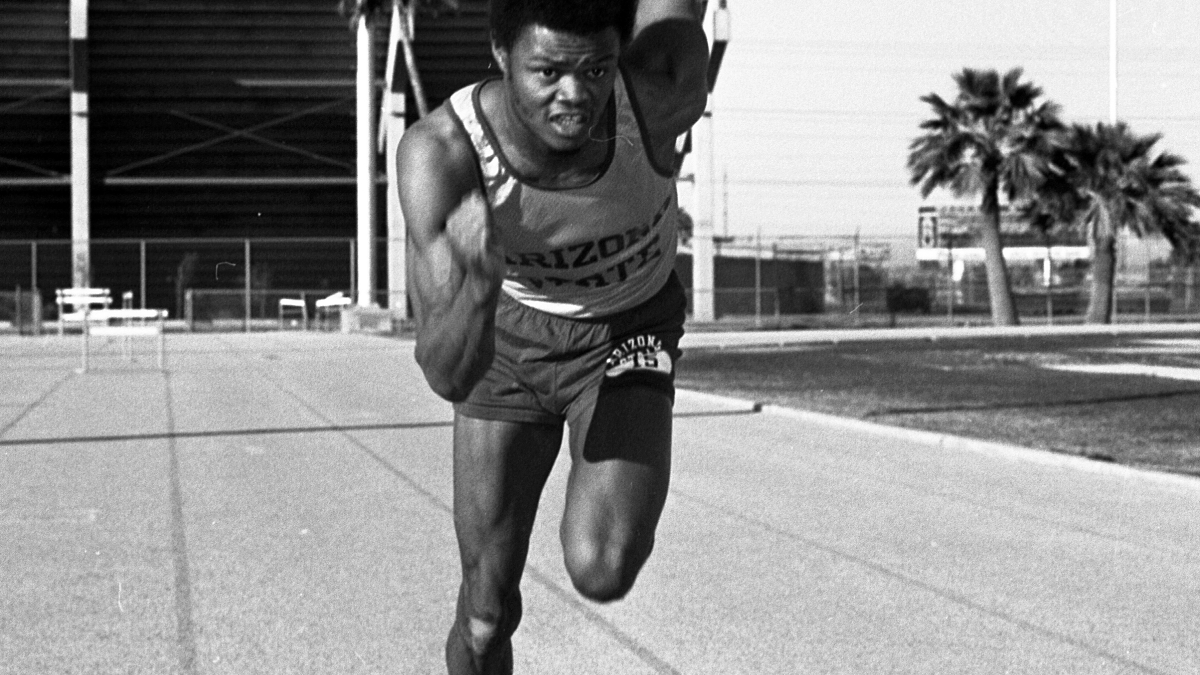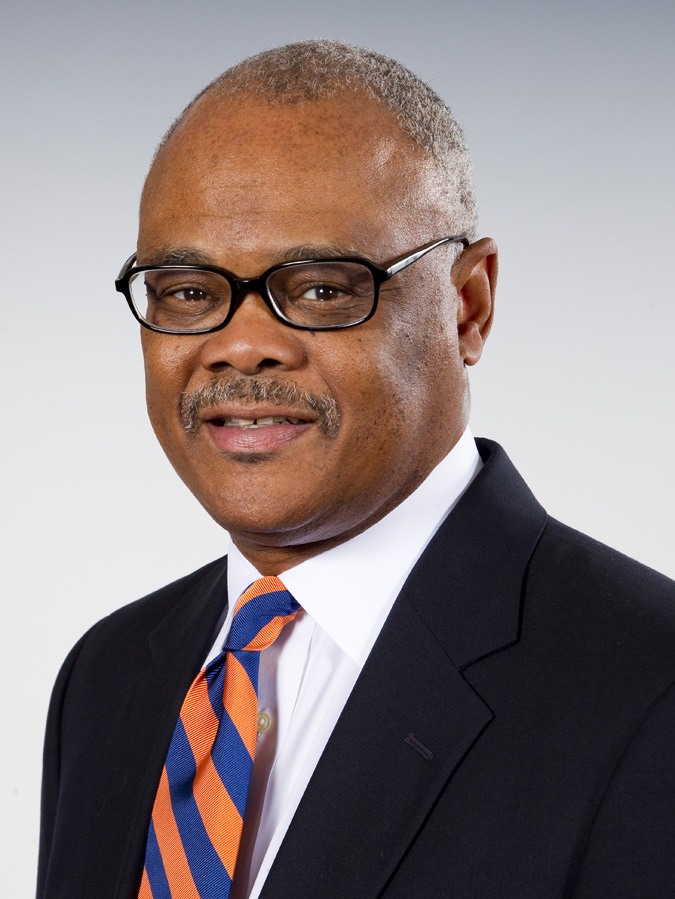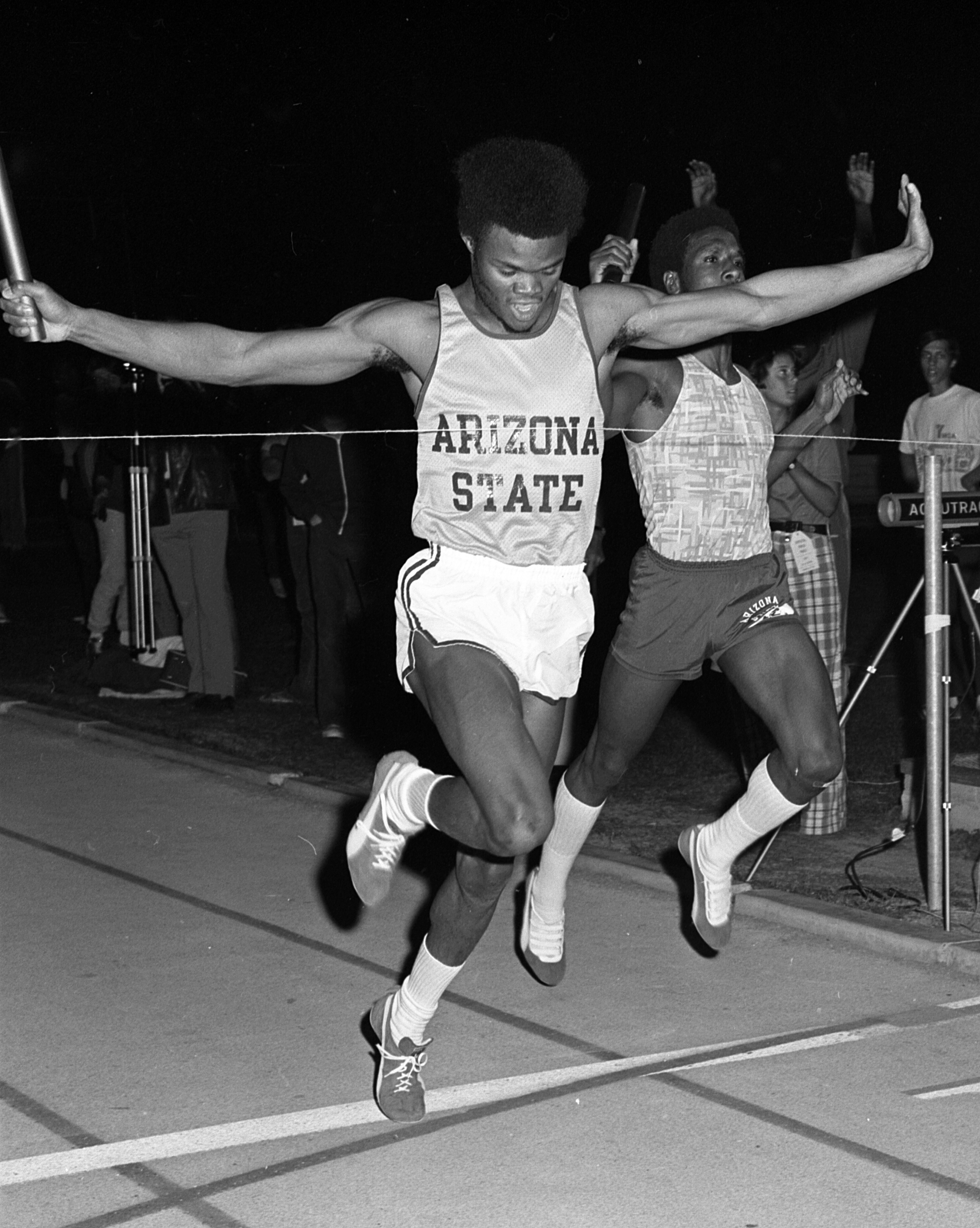For many athletes, the Olympics are a springboard to prominence that doesn’t end with the closing ceremonies.
Take Herman Frazier, senior deputy director of athletics at Syracuse University: The former Sun Devil brought gold to Tempe as a student 40 years ago before helping ASU to a national title in track and field, visiting the White House as part of the landmark U.S. boycott of the 1980 Moscow games, and embarking on a professional career that has seen him lead the nation’s Olympic delegation into competition.
Frazier (pictured in 2011 at right) was a junior at Arizona State when he and three teammatesThe team consisted of Frazier, Benny Brown, Fred Newhouse and Maxie Parks and ran the event in 2:58:65. won the 4-by-400 relay for the U.S. at the 1976 Montreal Olympics. Frazier also won an individual bronze medal in the 400-meter dash.
When he got back, he said, he immediately started chasing his next goal — leading the ASU track team to a national championship. The Sun Devils achieved that in 1977 with Frazier as the team captain.
“There was a buzz about us,” Frazier said. “Olympic sports were always well recognized at ASU.”
Frazier transferred to ASU from Dennison State in 1975. That year, he won a gold medal at the Pan Am Games.
“I was on people’s radar to have a good shot at making the (Olympic) team,” he said. “I was close to being pretty good.”
At that time, the Sun Devil track team used to train in the empty river bed where Tempe Town Lake is now.
Frazier ran about 15 races in the 1976 season and had only one week off to rest his legs before the Olympic trials. Most of the other runners, including his relay teammates, weren’t in college and didn’t run as many races.
“I had to be in pretty good shape and not let my body break down on me,” he said.
There were more than a handful of Sun Devils in Montreal along with Frazier, including Melissa Belote, who had won three gold medals in 1972. Frazier got to see her swim in the 200-meter backstroke, where she came in fifth, before the track events began.
Frazier won the bronze medal in the 400-meter dash, which he said was an honor because, “on that given day, I was third in the world.”
Three days later, he ran the first leg of the 4-by-400-meter relay team, winning the gold medal in what he said was a “defining moment.”
Back then, Frazier said, there was no professional football or baseball in Phoenix, “and the Suns were up and down, so Arizona State sports were it. I was recognized not only on campus but all over the Valley.”
Frazier graduated with a degree in political science and was hired by Fred Miller, the Sun Devils’ athletic director, first as a grad assistant and then as assistant director of events and facilities. The gold-medal Olympian also was a potent recruiting tool for prospects in all sports. During spring training, he taught running technique to the Oakland Athletics players.
Frazier said he wanted to run in the 1980 Olympics in Moscow, so while he was working full time, he kept training.
“I would go to work at 6 in the morning and get in as much work as I could. Then I would go to the baseball stadium, set up the parking and everything, and when the game was over around 4, I would train on the track next to the baseball stadium. And then I would go back to the office.”
Frazier made the U.S. men’s track team in 1980, but never got to Moscow. The United States boycotted those games, objecting to the Soviet Union’s invasion of Afghanistan. He was among a group of Olympians who visited with President Carter after the decision.
“No question, I was bitter at the time,” he said. “As time went on, as you get older and you understand the impact it had, I felt a little better.
“And I could take it a little easier compared to other athletes because I had a full-time job. If I had given up four years to train in the Olympics, I would have been more upset.”
Frazier spent more than 20 years at ASU, moving up to senior associate athletics director for business operations. From 1980 through 2004, he served on various United States Olympic committees, including two stints as the U.S. Olympic Committee vice president from 1996 through 2004. He was “chef de mission,” or diplomatic head, for the U.S. delegation at the Athens Olympics in 2004. He joined the staff at Syracuse University in 2011.
Nowadays, he brings out the medals when he speaks to kids.
“I bring them to show what can be accomplished through hard work and dedication.”
More Sun Devil community

Barrett program unlocks study abroad for first-year honors students
Twenty first-year students from Barrett, The Honors College at Arizona State University are spending their second semester studying abroad in Rome, Italy.Traveling in a tight-knit honors community…

A champion's gift: Donation from former Sun Devil helps renovate softball stadium
Jackie Vasquez-Lapan can hear the words today as clearly as she did 17 years ago.In 2008, Vasquez-Lapan was an outfielder on Arizona State University’s national championship-winning softball team,…

Student-led business organization celebrates community, Indigenous heritage
ASU has seen significant growth in Native American student enrollment in recent years. And yet, Native American students make up less than 2% of the student population.A member of the Navajo Nation,…




